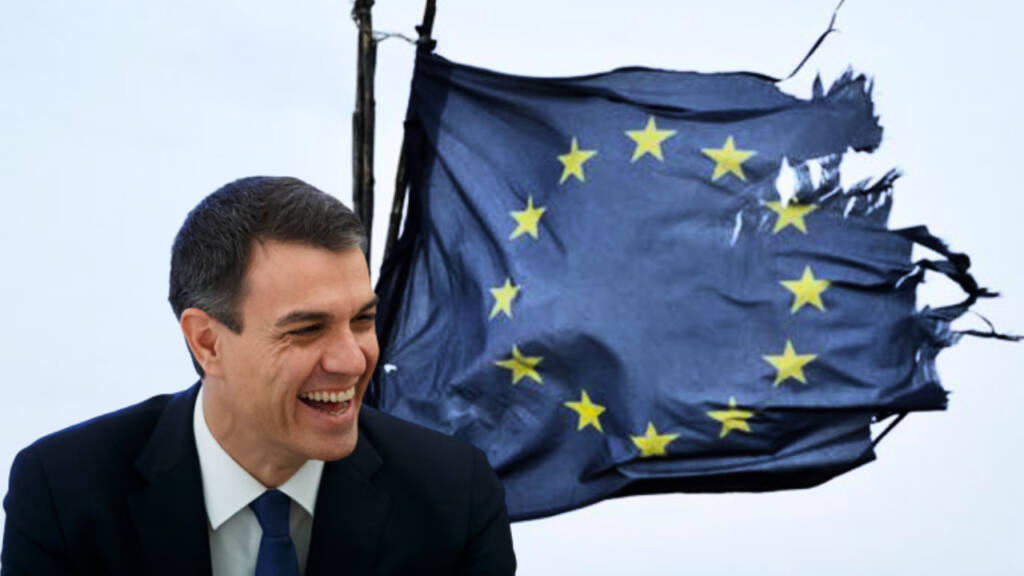Spain finds itself at a political crossroads in the wake of the recent national elections of July 2023. The election has led to a hung parliament. The major political factions stand powerless, unable to command a decisive majority in the governing body.
Pedro Sánchez, the standing Prime Minister, faces a grim predicament. His attempts to secure a firm foothold in the government have met with failure, leaving his political future hanging by a thread.
The nation now finds itself on the brink of a significant shift, with the formation of a government heavily reliant on the support of the Junts party. Without their backing, Spain stares at the bleak prospect of new elections, a path laden with uncertainty and potential upheaval.
The Election Tally: A Fragmented Picture
Following Spain’s recent elections, the 350 parliamentary seats are divided in a manner that indicates the potential for political fragmentation. Alberto Núñez Feijóo’s PP, securing 137 seats, and Santiago Abascal’s VOX with 33 seats, are in coalition discussions. Their combined strength is still below the 176 seats needed to form a government.
On the other side, Pedro Sánchez’s PSOE, holding 121 seats, is joining forces with Yolanda Díaz’s Sumar, which garnered 38 seats, to negotiate with Junts and other smaller parties, holding a combined 19 seats, to potentially form a governing alliance. The smaller parties are considering supporting the PSOE alliance. The Junts party, although holding only 7 seats, has substantial influence in the negotiations.
Junts: A ‘Powerful’ Player in Spanish Politics
In a significant political development, Junts, a pro-Catalonia party, finds itself in the epicenter of Spanish political negotiations. Its former leader, Carles Puigdemont, resides in Brussels, evading charges pressed by Spanish authorities.
Despite harboring demands that are generally viewed as unacceptable to mainstream Spanish parties, Puigdemont is currently a focal point in the political dialogue. Remarkably, both Pedro Sánchez and Yolanda Díaz have displayed a willingness to engage in negotiations with him.
Puigdemont: Setting the Terms
Carles Puigdemont delineated stringent demands amidst the ongoing political negotiations in Spain. Firstly, he mandates the pardon of all advocates of Catalan independence, essentially forcing the existing government to choose between adhering to these terms or facing the collapse of power.
Furthermore, he insists on the complete cessation of legal actions against members actively involved in the independence movement, thus seeking to shield them from legal repercussions.
Adding to this, Puigdemont firmly rejects the idea of granting amnesty to Spanish police officers who were previously held accountable for their brutal actions post the 2017 referendum.
Moreover, he urges the Spanish government to not only acknowledge the aspirations of the Catalan independence movement but to also affirm its democratic legitimacy.
Lastly, he advocates for the elevation of the Catalan language’s status within the European Union, aiming to bolster its prominence on a continental stage.
Despite facing criticism for their receptive stance towards Puigdemont, Sánchez and Deputy Prime Minister Yolanda Díaz are progressing with their plans. Díaz’s recent meeting with Puigdemont in Brussels, a notable first since Puigdemont’s flight from Spain, signals a potential alliance.
Although Díaz clarified she attended as the leader of the Sumar coalition, not as a government representative, the meeting indicates that an alliance could indeed be forming.
Read More: 10 Crises That Still Nauseate the EU
The Potential Impact of Spanish Politics
The unfolding political scenario in Spain can potentially fuel a significant shift in the broader European political landscape. Should the alliance in discussion take form, it could considerably escalate the momentum of the Catalonia independence movement, consequently initiating a domino effect that could reverberate through several European nations.
In the UK, Scotland has been harboring aspirations for independence, a sentiment that could gain traction, reigniting debates and possibly steering towards another referendum. Similarly, in France, the Basque Country and Corsica might intensify their demands for autonomy.
In Belgium, the Flanders region, known for its distinct linguistic and cultural identity, might see a surge in calls for autonomy, possibly rekindling the historical tensions between Flemish and French-speaking communities. In Italy, the regions of Veneto and Lombardy, already displaying signs of discontent with the central government, could further their demands for greater autonomy.
Furthermore, Denmark’s Faroe Islands, with a history of autonomous governance, might revisit the conversation surrounding full independence. Meanwhile, South Tyrol, a German-speaking community in Italy, could reignite its calls for self-governance.
Read More: Spain reaps the benefits of being neutral amid the Russia-Ukraine war
Thus, the prospective alliance in Spain, if realized, could act as a catalyst, encouraging several regions across Europe to rethink their alliances and possibly pursue paths towards greater autonomy or even independence, altering the existing geopolitical contours substantially.
Watch More:
